
The Writing Process: Lenses for Primary Writers from Planning to Publishing
It’s not really THE writing process. It’s A writing process. And it’s not necessarily a linear process. It’s a collection of lenses for improving writing from different perspectives. Pick up any book on teaching writing and it’ll deliver you a different version of The writing process. That’s ok. I don’t think there are two authors…
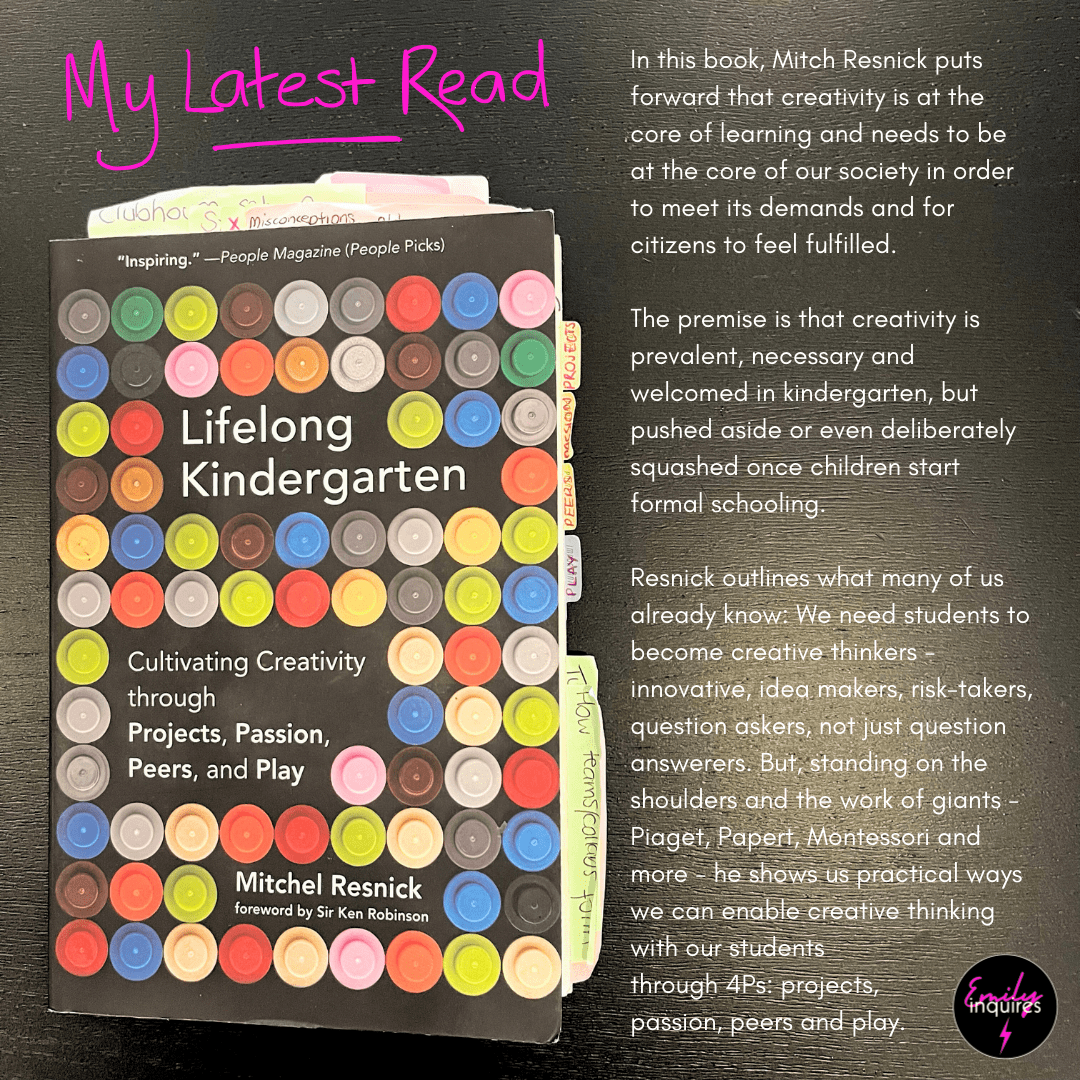
Lifelong Kindergarten
I’ve just finished Mitchel Resnick’s book Lifelong Kindergarten. I love the way this book shares real examples of how to bring powerful philosophies to life with students, and especially that it was so relevant to the kids I work with: upper primary. I’m sharing my sketch notes of the four chapters on projects, peers, play and…

TAG: Peer Writing Conferences
Students need peer-to-peer writing conferences. When done well, they allow our student writers to gain insight from peers on their writing while it is being crafted, and use this to guide their next steps. While feedback from teachers is important, feedback from peers can be powerful, allow a variety of perspectives, and be more instantaneous…

Prompts for Maths Reflections
Reflecting on the experience is one of two activities necessary to improve our mathematical thinking (Siemon et al., 2021). In Teaching Mathematics: Foundations to Middle Years, we read that “reflecting may involve writing about where we got stuck, what we did to become unstuck, conjectures we tried, patterns we found, and strategies we used” (Siemon,…
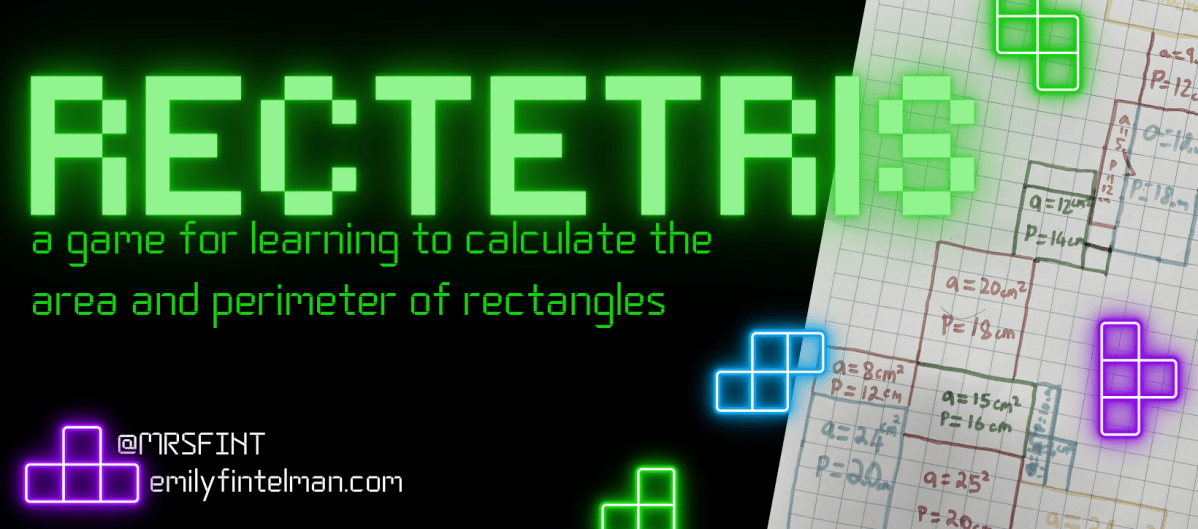
Rectetris: an area and perimeter game
I whipped up this game earlier this year to give my students the opportunity to practice calculating area and perimeter of rectangles. I wanted a game that included a genuine use for finding out both area and perimeter and could’t find anything. The main skills I aimed to have students build through this game were:…

Iggy Peck, Architect | STEAM through Picture Story Books
I love using picture story books for teaching anything and everything! I love the way rich literature enables imagination and wonder, and empathy and connection in students. These are wonderful starting points for inquiry learning driven by curiosity and care. Through a ‘STEAM through Picture Story Books’ series, I want to highlight some simple opportunities for…

Just One Bee | STEAM through Picture Story Books
I love using picture story books for teaching anything and everything! I love the way rich literature enables imagination and wonder, and empathy and connection in students. These are wonderful starting points for inquiry learning driven by curiosity and care. Through a ‘STEAM through Picture Story Books’ series, I want to highlight some simple opportunities…

Wilam: A Birrarung Story | STEAM through Picture Story Books
I love using picture story books for teaching anything and everything! I love the way rich literature enables imagination and wonder, and empathy and connection in students. These are wonderful starting points for inquiry learning driven by curiosity and care. I am currently working in a STEAM-based leadership role and have been encouraging teachers to…
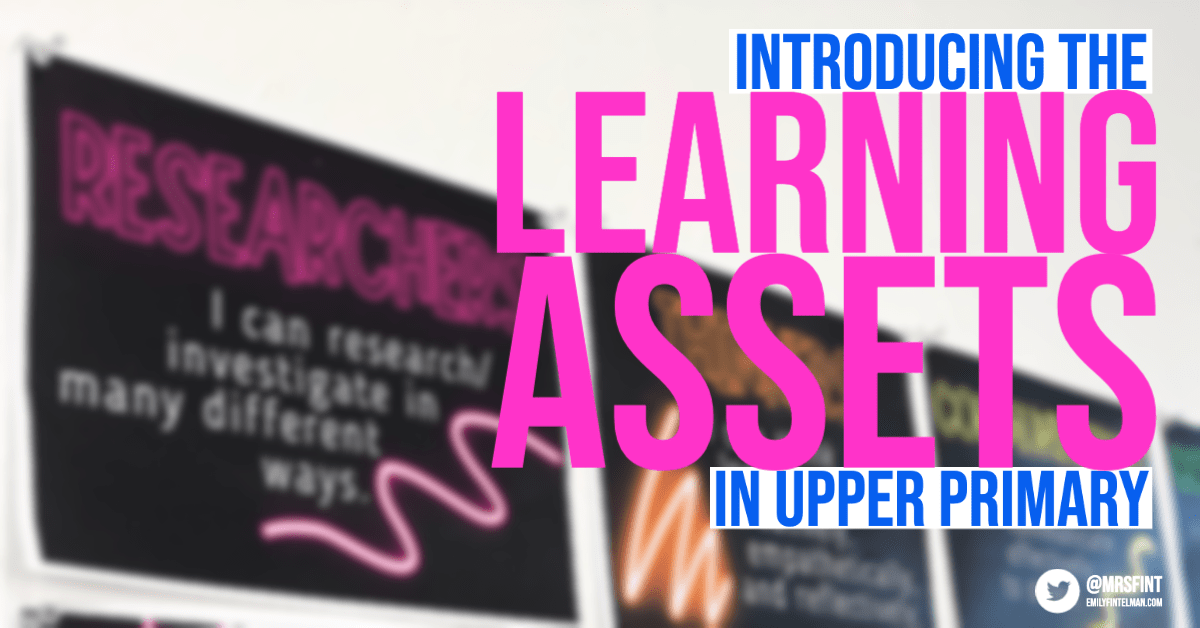
Introducing the Learning Assets in Upper Primary
In this post I share some lessons for introducing the learning assets. Skip to the end if you’re looking for those. This year my classroom co-teacher and I have been focusing on building the learning assets with our Year 4/5/6 students. As documented by Kath Murdoch in her book The Power of Inquiry (2015), learning…
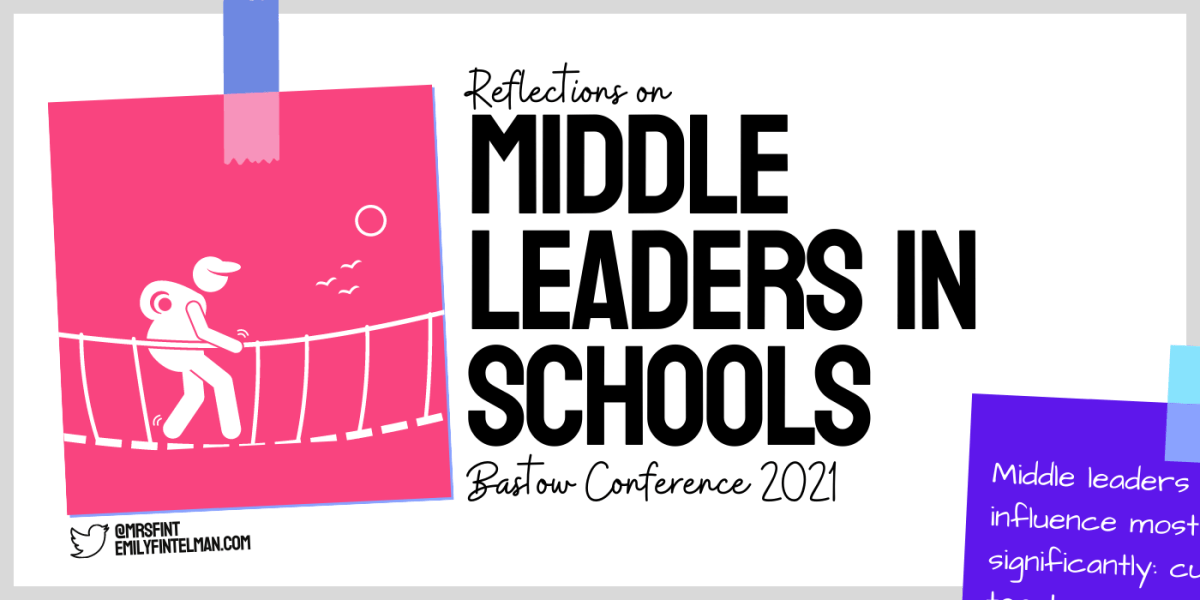
Bastow Middle Leaders in Schools Conference: My Reflections
I’ve written this post more as a reflection for myself rather than piece for anyone else, but if something resonates with you, I’d love to chat about it. I’ve got lots to untangle after this. I recently attended the inaugural Bastow Middle Leaders in Schools conference. The conference was, as always with Bastow, high quality…
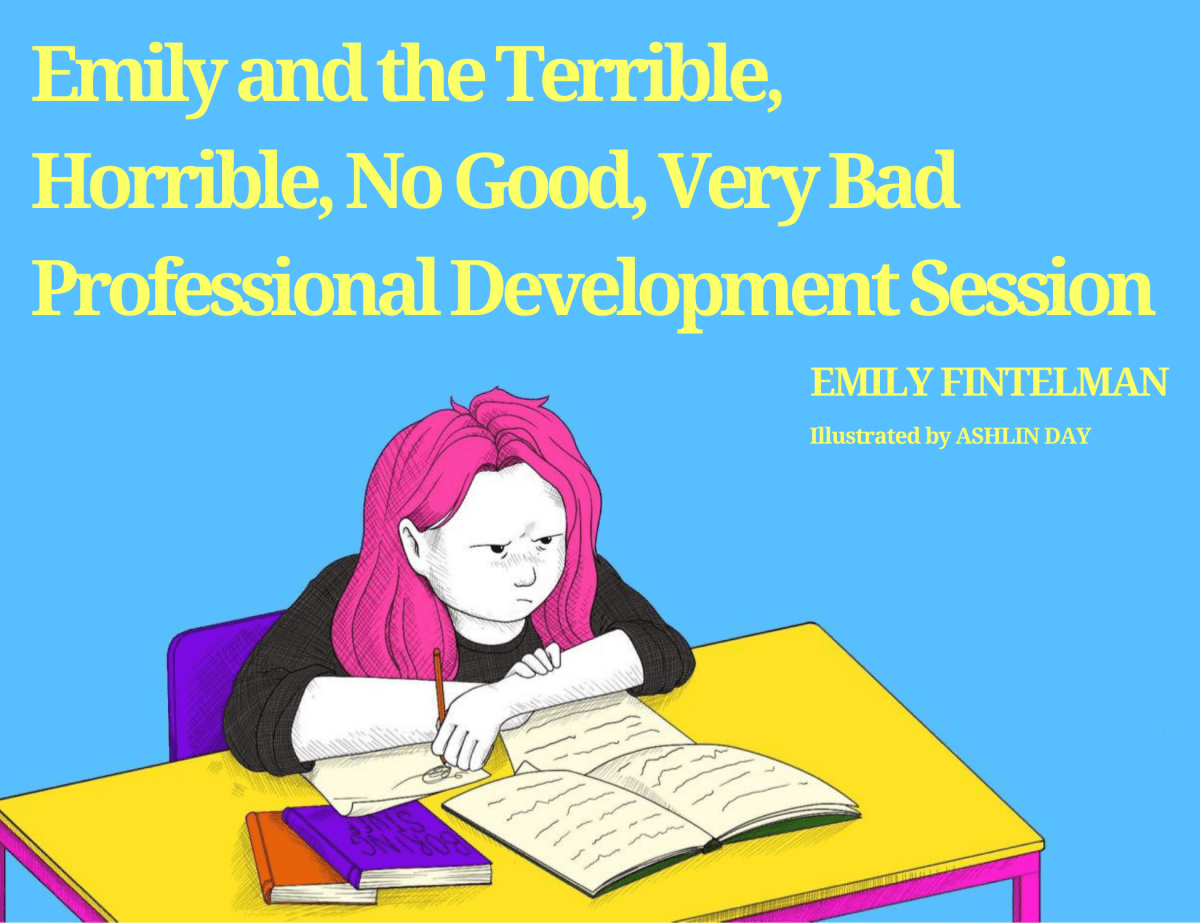
Emily and the Terrible, Horrible, No Good, Very Bad Professional Development Session
Illustration by the very talented Ashlin Day The presenter started five minutes late and said “Can you see my screen?” and we all said “No”. I could tell this was going to be a terrible, horrible, no good, very bad professional development session. The presenter spent 10 minutes giving us an overview of what they…
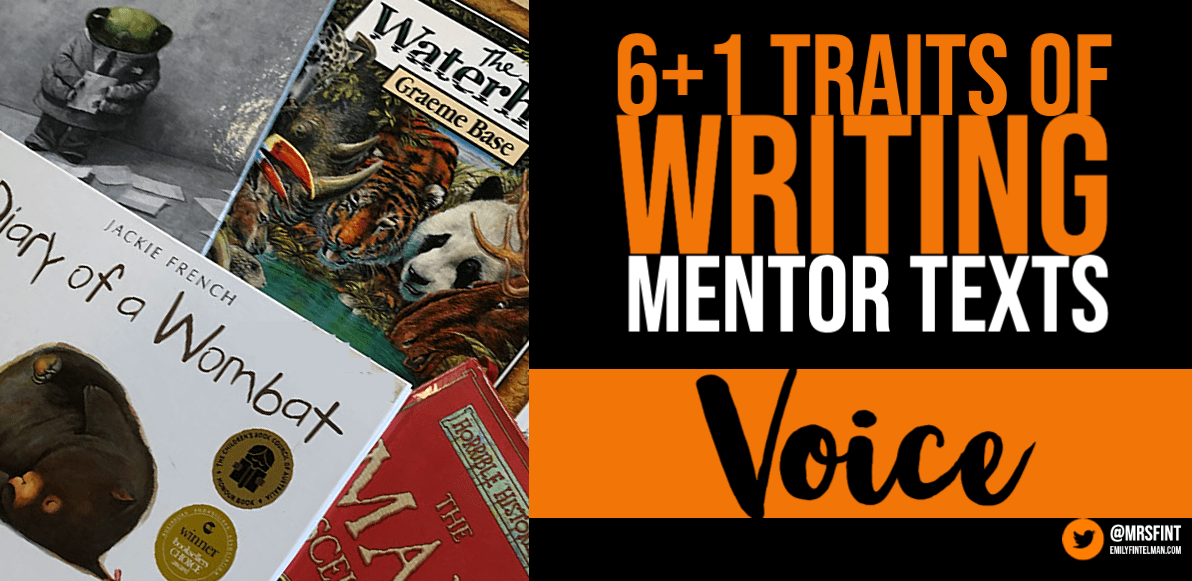
6+1 Traits of Writing Mentor Texts: Voice
This post is part of a series of posts on mentor texts I recommend for showing students how authors use the 6+1 Traits of Writing. What is the voice trait? The writing trait of voice is “the tone and tenor of the piece – the personal stamp of the writer, which is achieved through a…

6+1 Traits of Writing Mentor Texts: Organisation
This post is part of a series of posts on mentor texts I recommend for showing students how authors use the 6+1 Traits of Writing. What is the Organisation trait? The writing trait of organisation involves “the internal structure of the piece, the thread of meaning, the logical pattern of ideas”. Ruth Culham (6+1 Traits…
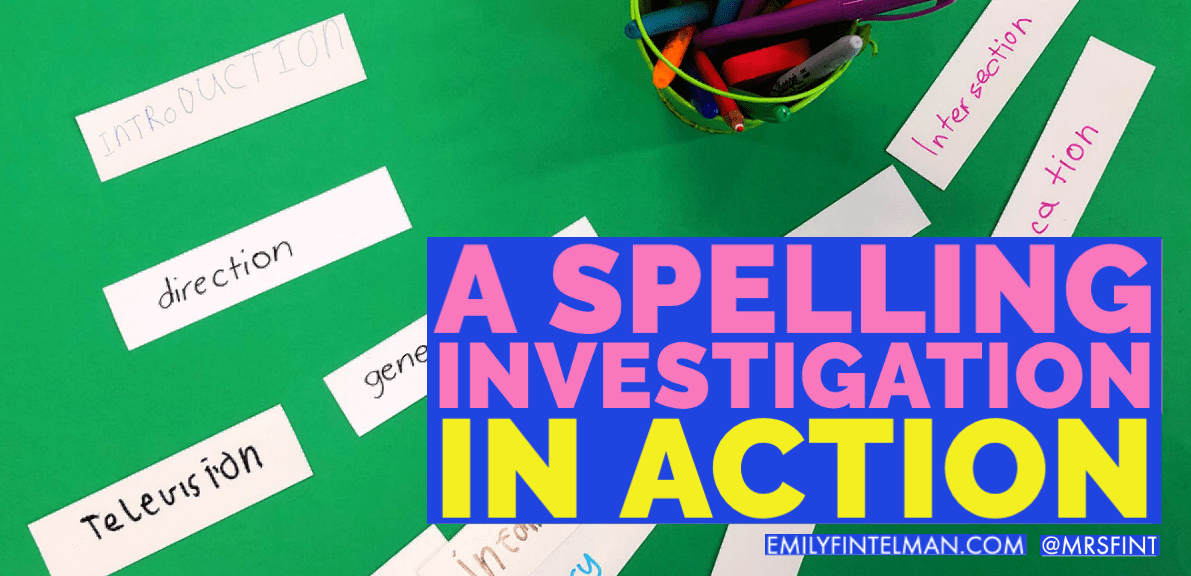
A Spelling Investigation in Action
One of the ways I approach spelling with my students is to use spelling investigations. A spelling investigation requires a student or group of students to inquire into a spelling pattern, sound, or observation about how words are spelled, and then to find and sort examples of this and create generalisations about spelling based on…
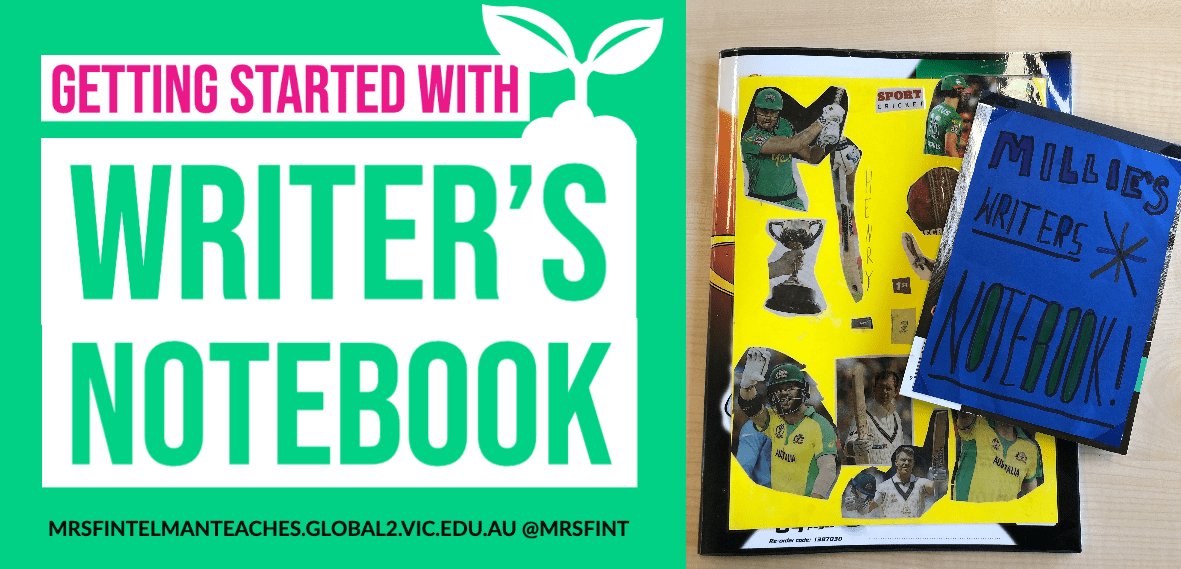
Getting Started with Writer’s Notebook
What is a Writer’s Notebook? Sometimes called the ‘messy attic of the mind’, the writer’s notebook is a magical place. It’s a place writers can collect, store, grow and nurture their ideas for writing. It is often filled with a collection of seeds (artefacts that provoke writing) like photos, sketches, holiday mementos, lists, news clippings,…
The New Normal: Teaching Amidst Coronavirus
Written for the DLTV Journal in April 2020 as a follow up to my first blog post responding to teaching amidst Coronavirus. This reflection outlines my school’s approach to Remote Learning 1.0. It is a difficult time for teachers. There is so much scrutiny and attention on what schools are doing right now. It feels…
Relief Sets In: Teaching Amidst Coronavirus
I entered the early school holidays in a state of paralysis. To be clear, I always enter the school holidays in some sort of zombie-fied state. It’s near impossible to make it to the end of term without clawing your way through your front door on the last day and collapsing on the couch from…

How I’m Spending the Class Budget
In the last few days you have probably been given a few hundred dollars for your class budget and a catalogue for some ordering. Come the Back-To-School season, a Norah Ephron film would recommend a bouquet of newly sharpened pencils, but I personally am a paper-fiend. I am ashamed to admit how much I love…

Island Survival: A Cooperative Game
Do you need a great cooperative game? This one will sweep them away. I play Island Survival with year 4, 5, and 6s either at the beginning or end of the year and it is always a hit! They often ask for it again. It’s a great game that allows for problem solving, justification, reasoning,…

9 Types of Reading Journal Entries
A typical independent reading task in my classroom consists of reading and a response to reading. A response to reading usually is done in the reading journal. It helps students to confidently and independently respond to texts if, over the year, you help them build up a bank of reading journal entry types that they…
Something went wrong. Please refresh the page and/or try again.